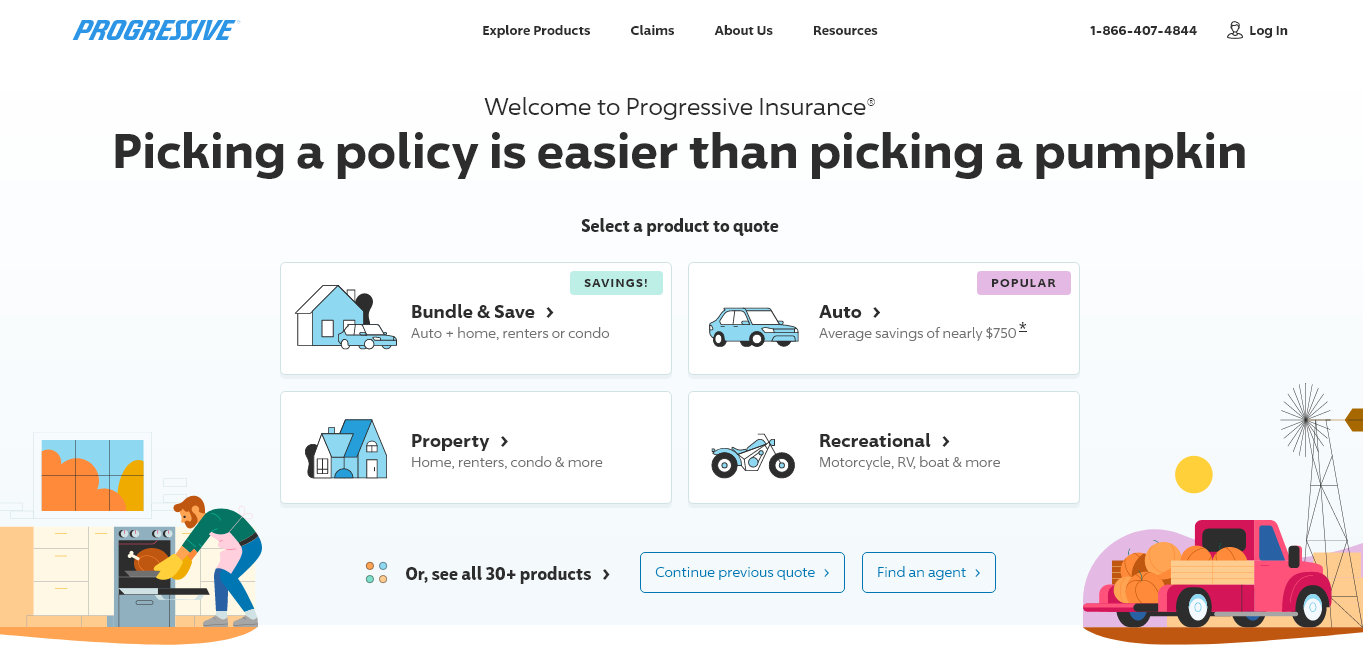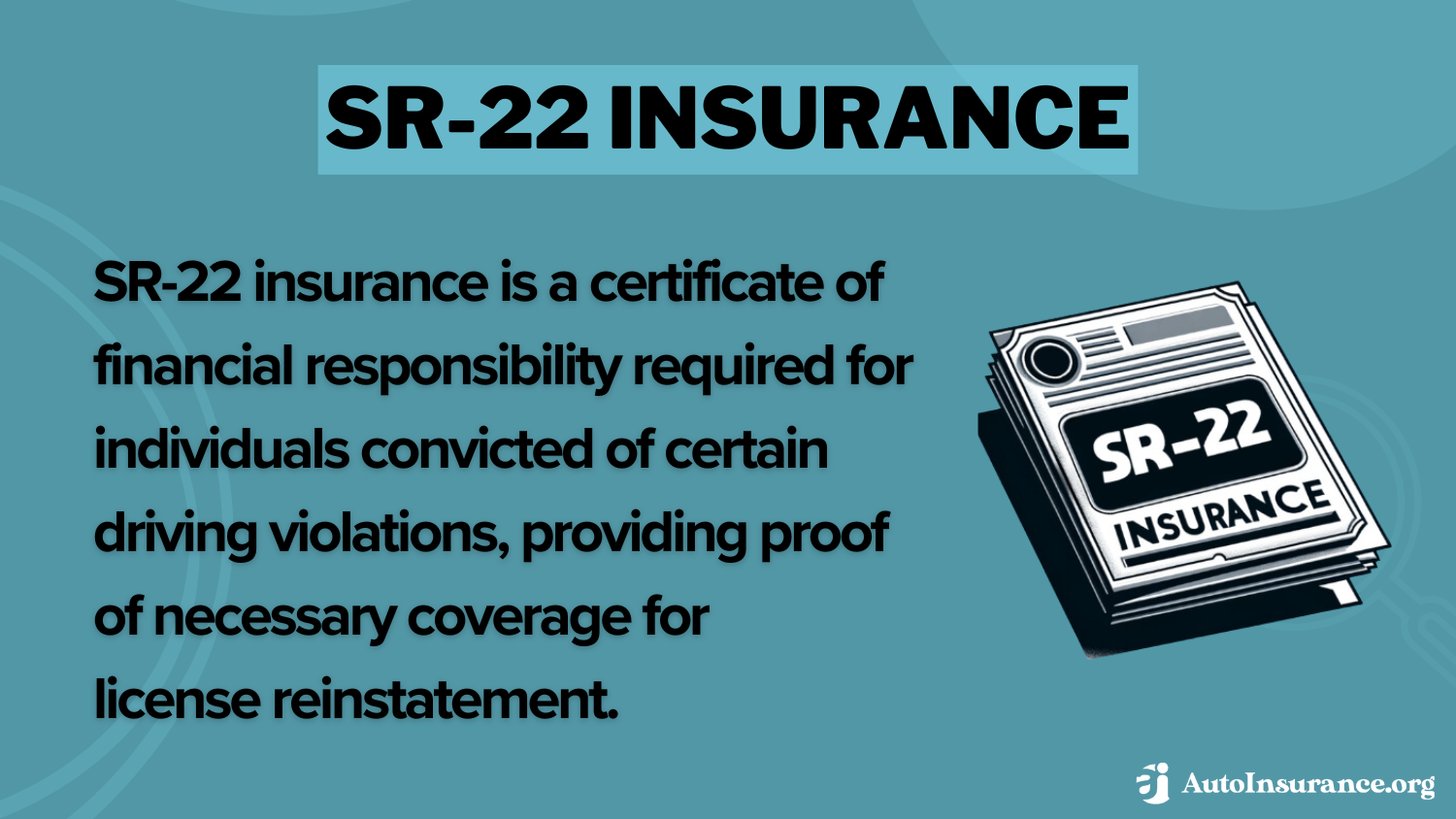Washington Minimum Auto Insurance Requirements for 2025 (Coverage WA Drivers Need)
Washington minimum auto insurance requirements are 25/50/10, meaning drivers need to carry $25,000 in bodily injury coverage per person, $50,000 per accident, and $10,000 for property damage. Minimum auto insurance coverage in Washington state starts at $26/mo, but shopping around can lower your costs.
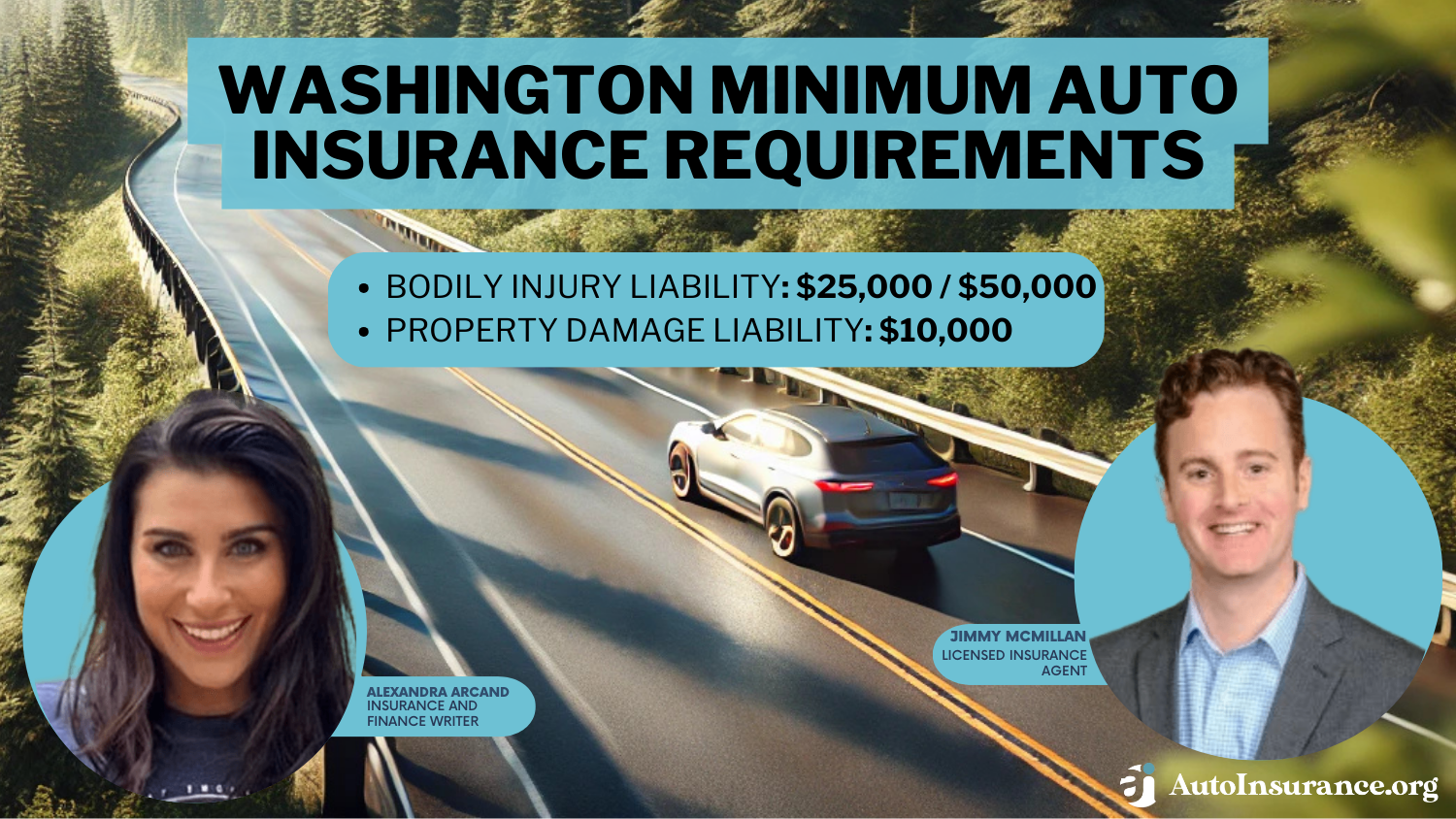
Free Car Insurance Comparison
Compare Quotes From Top Companies and Save
Secured with SHA-256 Encryption
Jimmy McMillan
Licensed Insurance Agent
Jimmy McMillan is an entrepreneur and the founder of HeartLifeInsurance.com, an independent insurance brokerage. His company specializes in insurance for people with heart problems. He knows personally how difficult it is to secure health and life insurance after a heart attack. Jimmy is a licensed insurance agent from coast to coast who has been featured on ValientCEO and the podcast Modern Li...
Licensed Insurance Agent
UPDATED: Mar 27, 2025
It’s all about you. We want to help you make the right coverage choices.
Advertiser Disclosure: We strive to help you make confident auto insurance decisions. Comparison shopping should be easy. We are not affiliated with any one auto insurance provider and cannot guarantee quotes from any single provider. Our partnerships don’t influence our content. Our opinions are our own. To compare quotes from many different companies please enter your ZIP code on this page to use the free quote tool. The more quotes you compare, the more chances to save.
Editorial Guidelines: We are a free online resource for anyone interested in learning more about auto insurance. Our goal is to be an objective, third-party resource for everything auto insurance related. We update our site regularly, and all content is reviewed by auto insurance experts.
UPDATED: Mar 27, 2025
It’s all about you. We want to help you make the right coverage choices.
Advertiser Disclosure: We strive to help you make confident auto insurance decisions. Comparison shopping should be easy. We are not affiliated with any one auto insurance provider and cannot guarantee quotes from any single provider. Our partnerships don’t influence our content. Our opinions are our own. To compare quotes from many different companies please enter your ZIP code on this page to use the free quote tool. The more quotes you compare, the more chances to save.
On This Page
Washington minimum auto insurance requirements are 25/50/10, covering $25,000 for bodily injury per person, $50,000 per accident, and $10,000 for property damage.

While meeting these minimums ensures legal compliance, many drivers choose additional coverage for better protection, especially in Washington’s contributory negligence system.
Washington Minimum Auto Insurance Coverage Requirements & Limits
| Coverage | Limits |
|---|---|
| Bodily Injury Liability | $25,000 per person / $50,000 per accident |
| Property Damage Liability | $10,000 per accident |
USAA offers the lowest rates, with Progressive and State Farm also providing competitive options. By comparing quotes, you can find affordable coverage tailored to your needs.
To find out if you can get cheaper auto insurance rates, enter your ZIP code into our free quote tool above to instantly compare prices from various companies near you.
- Washington’s minimum insurance requires 25/50/10 liability coverage
- State minimums ensure compliance, but added coverage improves protection
- Compare quotes for affordable Washington minimum auto insurance
Washington Minimum Coverage Requirements & What They Cover
Each state legislates its own insurance laws. Washington state auto insurance requirements would be found in Title 46 of the Revised Code of Washington.
This is the section that deals primarily with motor vehicles, with Chapter 46.29 and Chapter 46.30 dealing specifically with financial responsibility and mandatory liability insurance respectively.
The minimum auto insurance coverage in Washington state is set at 25/50/10, meaning $25,000 in personal injury liability per person, $50,000 per accident for multiple people, and $10,000 for property damage.
These limits fulfill the minimum requirements for Washington car insurance, as detailed in the Washington auto insurance guide, but opting for higher coverage can provide better financial protection.
Washington drivers must carry a minimum of 25/50/10 liability coverage to stay legally insured, but additional coverage is recommended for better protection.Jeffrey Manola Licensed Insurance Agent
Also, certain entities are excluded from Washington state insurance requirements.
Government vehicles and self-insured fleets of 26 or more vehicles are excluded as well as those persons or companies that place a $60,000 deposit with the Washington State Treasurer or purchase from a broker a $60,000 Certificate of Deposit.
It is also possible to buy a liability bond for a minimum of $60,000. The security bond provider must be licensed in the state to provide this type of surety.
Read more: What does standard auto insurance cover?
Free Auto Insurance Comparison
Enter your ZIP code below to view companies that have cheap auto insurance rates.
Secured with SHA-256 Encryption
Cheapest Car Insurance in Washington
When looking for the cheapest car insurance in Washington, USAA offers the lowest rates, making it a great option for meeting Washington auto insurance requirements. Progressive and State Farm follow closely with competitive rates, both fulfilling the Washington state auto insurance requirements.
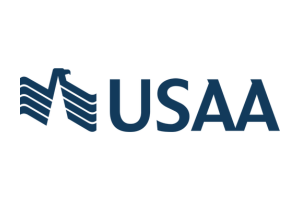 6,589 reviews
6,589 reviewsCompany Facts
Min. Coverage in Washington
A.M. Best Rating
Complaint Level
Pros & Cons
 6,589 reviews
6,589 reviews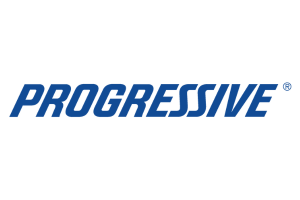 13,283 reviews
13,283 reviewsCompany Facts
Min. Coverage in Washington
A.M. Best Rating
Complaint Level
Pros & Cons
 13,283 reviews
13,283 reviews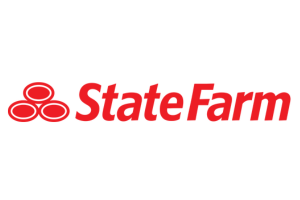 18,154 reviews
18,154 reviewsCompany Facts
Min. Coverage in Washington
A.M. Best Rating
Complaint Level
Pros & Cons
 18,154 reviews
18,154 reviewsCar insurance rates in Washington vary by city, but all must comply with minimum auto insurance coverage in Washington state, which includes a minimum of $25,000 for bodily injury per person, $50,000 for bodily injury per accident, and $10,000 for property damage.
Washington Min. Coverage Auto Insurance Monthly Rates by City
| City | Rates |
|---|---|
| Bellevue | $72 |
| Bellingham | $69 |
| Everett | $73 |
| Kent | $75 |
| Olympia | $71 |
| Seattle | $77 |
| Spokane | $68 |
| Tacoma | $74 |
| Vancouver | $66 |
| Yakima | $70 |
For example, Vancouver has the lowest rate at $66, while Seattle and Everett are slightly higher at $77 and $73. Shopping for coverage that meets Washington state minimum car insurance requirements can help you find affordable options across the state.
Additionally, Progressive is a reliable option for affordable car insurance in Washington because it provides competitive rates and coverage options that meet the needs of different drivers.
The Snapshot program helps safe drivers save more, while multi-policy discounts offer added value when bundling auto, home, or renters insurance. Known for its balance of quality and affordability, Progressive remains a popular choice for drivers in Washington.
Read more: What are the recommended auto insurance coverage levels?
Other Coverage Options to Consider in Washington
Understanding your auto insurance policy is essential to ensure you have the right protection for your needs. In Washington State, minimum auto insurance requirements mandate certain coverages, while others are optional but highly recommended.
Here are the six basic types of coverage to consider:
- Bodily Injury Liability: Bodily injury liability auto insurance requires coverage that protects you if you’re found at fault in an accident. It pays up to your policy limits for injuries sustained by others, including the driver and passengers of the other vehicle. It can also cover legal defense costs if you’re sued.
- Medical Payments (Med Pay) and Personal Injury Protection (PIP): These cover injuries for you and your passengers. While Washington car insurance laws require insurers to offer PIP, it’s optional for the policyholder. Personal Injury Protection (PIP) auto insurance covers injuries regardless of fault, including pedestrians, while Med Pay is limited to those in your vehicle.
- Property Damage Liability: Required by Washington state insurance requirements, this coverage pays for damages to another’s property caused by an at-fault accident. Explore property damage liability (PDL) auto insurance companies to find providers offering policies tailored to your specific needs.
- Uninsured (UI) and Underinsured (UIM) Motorist: If the at-fault driver has inadequate or no insurance, these coverages step in. Though only UI is required by law, additional UIM options can be declined through a rejection form.
- Collision Coverage: Collision auto insurance is an optional coverage that pays for the replacement value of your vehicle if it is damaged in a covered accident. While not required, lenders often insist on it to protect their interests.
- Comprehensive Auto Insurance Coverage: This protects against non-collision damages like vandalism, theft, or natural disasters. If you live in areas with wildlife, this coverage can be particularly valuable.
When asking, “Does Washington require car insurance?” the answer is yes. While Washington outlines minimum liability requirements, understanding each coverage type ensures you’re fully protected. Review your policy carefully to make informed decisions.
Penalties for Driving Without Insurance in Washington
Driving without insurance in Washington can result in severe penalties because the state requires every driver to carry auto insurance. If caught driving without coverage, you could face the following penalties:
- Fines: You can be fined anywhere from $450 to $550 for driving without having insurance.
- Vehicle Impoundment: Your vehicle may be impounded if you’re caught without car insurance in Washington state.
- SR-22 Requirement: You may be required to file an SR-22 auto insurance, which shows proof that you’re carrying the required insurance. This can lead to higher premiums when purchasing Washington car insurance.
- License Suspension: If you’re driving without auto insurance in Washington state, your driver’s license may be suspended.
- Increased Insurance Premiums: Having a lapse in coverage can cause your future Washington state car insurance premiums to increase.
To avoid these penalties as a policyholder, it’s essential to maintain active auto insurance in Washington that meets the minimum requirements.
Make sure your Washington car insurance policy is always up to date to avoid the risk of fines, vehicle impoundment, and higher insurance costs.
Free Auto Insurance Comparison
Enter your ZIP code below to view companies that have cheap auto insurance rates.
Secured with SHA-256 Encryption
Why Washington State Minimum Auto Insurance May Not Meet Your Personal Needs
While most people purchase coverage to meet Washington state car insurance requirements, opting for additional and optional coverages can provide greater protection.
Minimum car insurance coverage in Washington state may not be enough to fully safeguard against risks, especially in a Contributory Negligence fault system.
Car insurance rates are skyrocketing (up 95% over the past 10 years) and car insurance companies are minting money. Progressive stock is up over 1,000% in the last decade vs. 241% gain for the S&P 500. $PGRhttps://t.co/l5IYmkf6Ih pic.twitter.com/JiNzX0DIiN
— Charlie Bilello (@charliebilello) September 10, 2024
In Washington, even pedestrians can be found partially at fault for accidents, which could shift the burden of restitution to your Washington auto insurance policy.
Ultimately, you are paying for protection against loss, and car insurance laws in Washington state ensure insurers price premiums based on risk.
While some companies may offer lower prices for higher-risk policies, it’s important to choose coverage that aligns with your needs and provides adequate protection for unforeseen events.
Read more: What is needed for adequate auto insurance coverage?
Find the best auto insurance company near you by entering your ZIP code into our free quote tool below.
Frequently Asked Questions
What is the minimum auto insurance coverage in Washington state?
So, what is the minimum car insurance in Washington state? According to Washington car insurance laws, drivers should carry the following Washington state car insurance coverage limits:
- Liability coverage: $25,000 for bodily injury or death per person, $50,000 for bodily injury or death per accident, and $10,000 for property damage per accident.
- Uninsured motorist coverage: $25,000 for bodily injury or death per person, $50,000 for bodily injury or death per accident.
- Personal injury protection (PIP): $10,000.
Does Washington require car insurance?
Do you have to have car insurance in Washington state? Yes, car insurance is required in Washington. All drivers are required to carry Washington state liability insurance minimums to legally operate a vehicle. Start comparing total coverage auto insurance rates by entering your ZIP code below.
What is Washington’s financial responsibility requirement?
Drivers must follow Washington state auto insurance laws to demonstrate financial responsibility, which typically means having car insurance. The minimum WA state insurance requirements:
- $25,000 for bodily injury or death of one person in an accident
- $50,000 for bodily injury or death of two or more people in an accident
- $10,000 for property damage in an accident
Read more: When to Buy More Than Minimum Auto Insurance
Is uninsured motorist coverage required in Washington state?
Uninsured motorist (UM) coverage isn’t mandatory in Washington, but insurers must offer it. This coverage protects you financially if you’re involved in an accident with an uninsured driver or a hit-and-run, covering medical expenses and damages.
What is full coverage in Washington state?
Full coverage car insurance in Washington typically includes:
- Liability Insurance
- Comprehensive Insurance
- Uninsured/Underinsured Motorist Coverage
- Personal Injury Protection (PIP)
Is PIP required in Washington state?
Personal Injury Protection (PIP) is not required by Washington state car insurance laws, but it must be offered by insurers. Explore the best auto insurance companies for cheap personal injury protection (PIP) coverage to discover affordable coverage options that fit your needs.
How much liability insurance do I need in Washington state?
Washington auto insurance laws require the following minimum liability coverage:
- $25,000 for bodily injury or death of one person in an accident
- $50,000 for bodily injury or death of two or more people in an accident
- $10,000 for property damage in an accident
How much is the average car insurance in WA?
The monthly cost of a full coverage policy for Washington state auto insurance averages between $100 to $125. On the other hand, Washington state minimum car insurance coverage averages around $37 to $50 per month. Check out auto insurance premium costs to discover how various coverage options can impact your budget and help you find the best policy.
Who has the cheapest car insurance in Washington state?
The cheapest car insurance companies in Washington are USAA, State Farm, and Geico.
Why is auto insurance so high in Washington state?
So, why are insurance rates going up in Washington state? Several factors contribute to higher Washington insurance quotes, including:
- Higher Population Density: More drivers lead to a higher likelihood of accidents.
- Weather Conditions: Rain and fog can contribute to more accidents.
- Medical Costs: Higher medical expenses can increase the cost of injury claims.
- Fraud: Insurance fraud can drive up rates for everyone.
Is Washington a no-fault state?
Washington follows a traditional tort system where the driver who is at fault in an accident is responsible for covering the damages.
Read more: Cheap No-Fault Auto Insurance
Can you self-insure your car in Washington state?
Self-insurance is typically an option for individuals or businesses with a large number of vehicles. To do so, you must meet Washington insurance requirements set by the Washington State Department of Licensing (DOL).
What does the Washington state minimum auto insurance 25/50/10 mean?
25/50/10 refers to Washington state auto insurance minimums.
Do you need insurance to register a car in Washington?
Yes, you need insurance to register a car in Washington state. When you register your vehicle, you must prove that you have the minimum car insurance coverage required in Washington state. Curious to learn whether your car needs to be registered to get auto insurance. Explore our guide to understand how registration and insurance requirements work together to keep you covered.
What are Washington state SR-22 insurance requirements?
Typically, you must maintain SR-22 insurance for three years. If your SR-22 insurance lapses or is canceled, your insurance company is required to notify the DOL.
Free Auto Insurance Comparison
Enter your ZIP code below to view companies that have cheap auto insurance rates.
Secured with SHA-256 Encryption
Jimmy McMillan
Licensed Insurance Agent
Jimmy McMillan is an entrepreneur and the founder of HeartLifeInsurance.com, an independent insurance brokerage. His company specializes in insurance for people with heart problems. He knows personally how difficult it is to secure health and life insurance after a heart attack. Jimmy is a licensed insurance agent from coast to coast who has been featured on ValientCEO and the podcast Modern Li...
Licensed Insurance Agent
Editorial Guidelines: We are a free online resource for anyone interested in learning more about auto insurance. Our goal is to be an objective, third-party resource for everything auto insurance related. We update our site regularly, and all content is reviewed by auto insurance experts.

